Preparation of ethers by acid dehydration of secondary or tetiary alcohols is not a suitable method. Give reason.
Acid-catalysed dehydratrion of 1∘ alcohols to ethers occurs by SN2 reaction involving nucleophilic attack by the alcohol molecule on the protonated alcohol molecule.

Under these conditions, 2∘ and 3∘ alcohols, however, give alkenes rathenes than ethers. The reason being that due, to steric hindrance, nucleophilic attack by the alcohol molecule on the protonatedc alcohol molecule does not occur. Insted protonated 2∘ and 3∘ alcohols lose a molecule of water form stable 2∘ and 3∘ carbocations. These carbonations prefer to lose a proton to form alkenes rather than undergoing nucleophilic attack by alcohol molecules to form ethers.
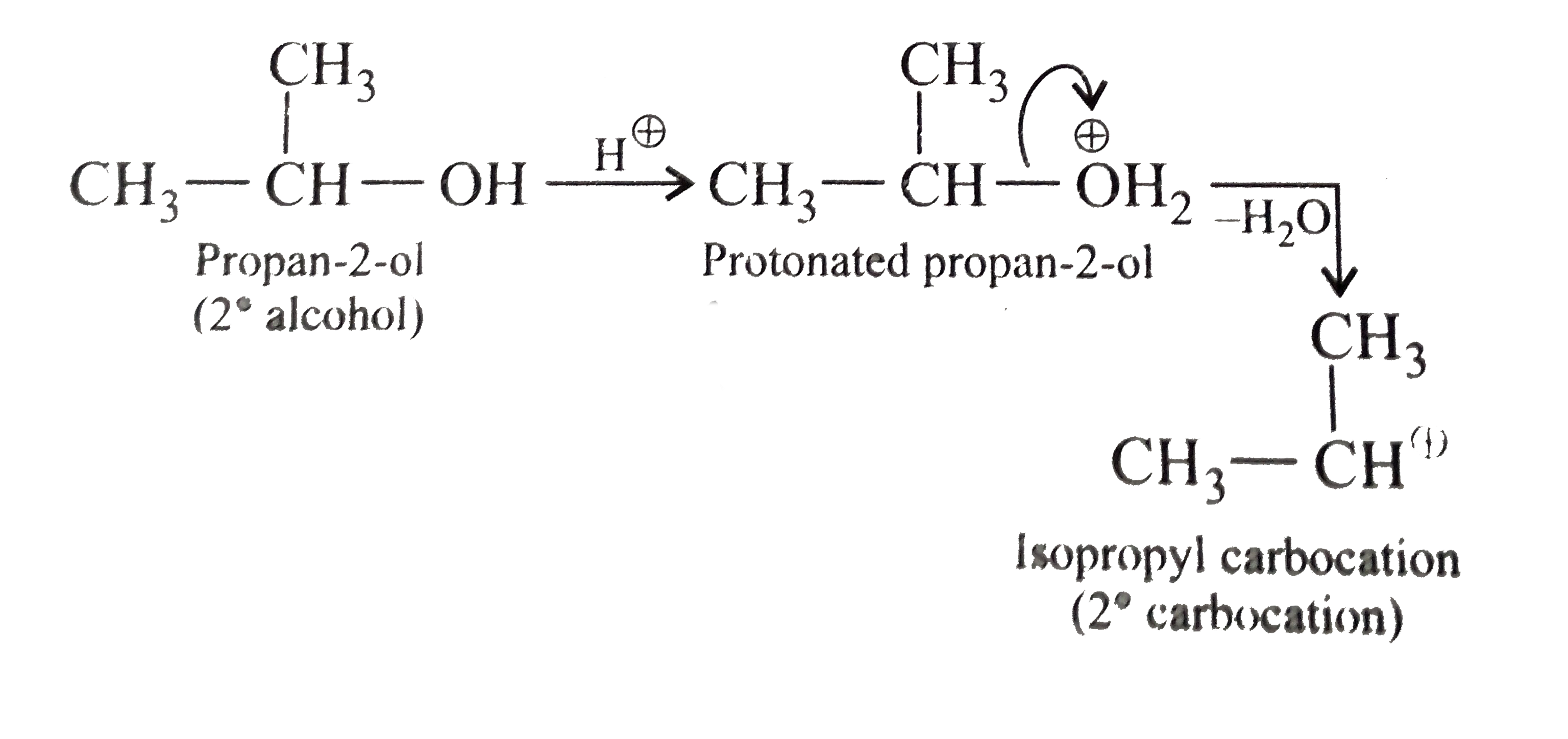
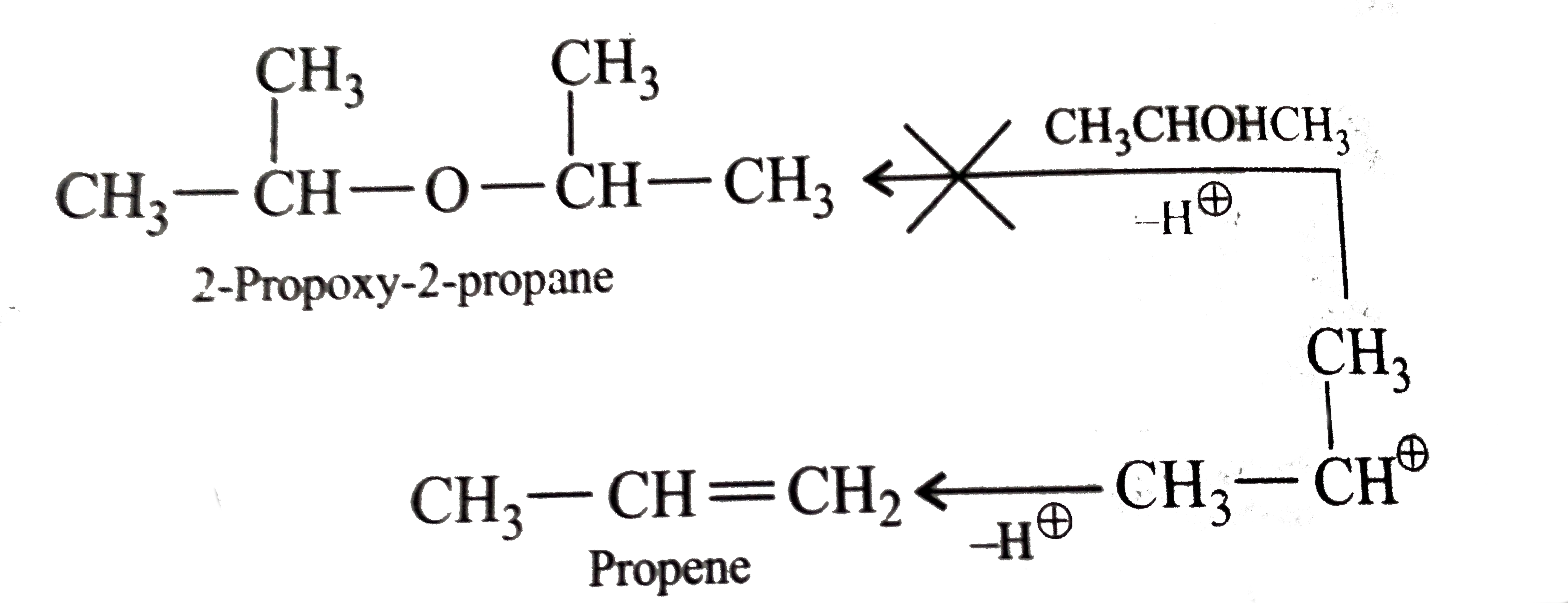
Similarly, 3∘ alcohols give alkenes rather than ethers.
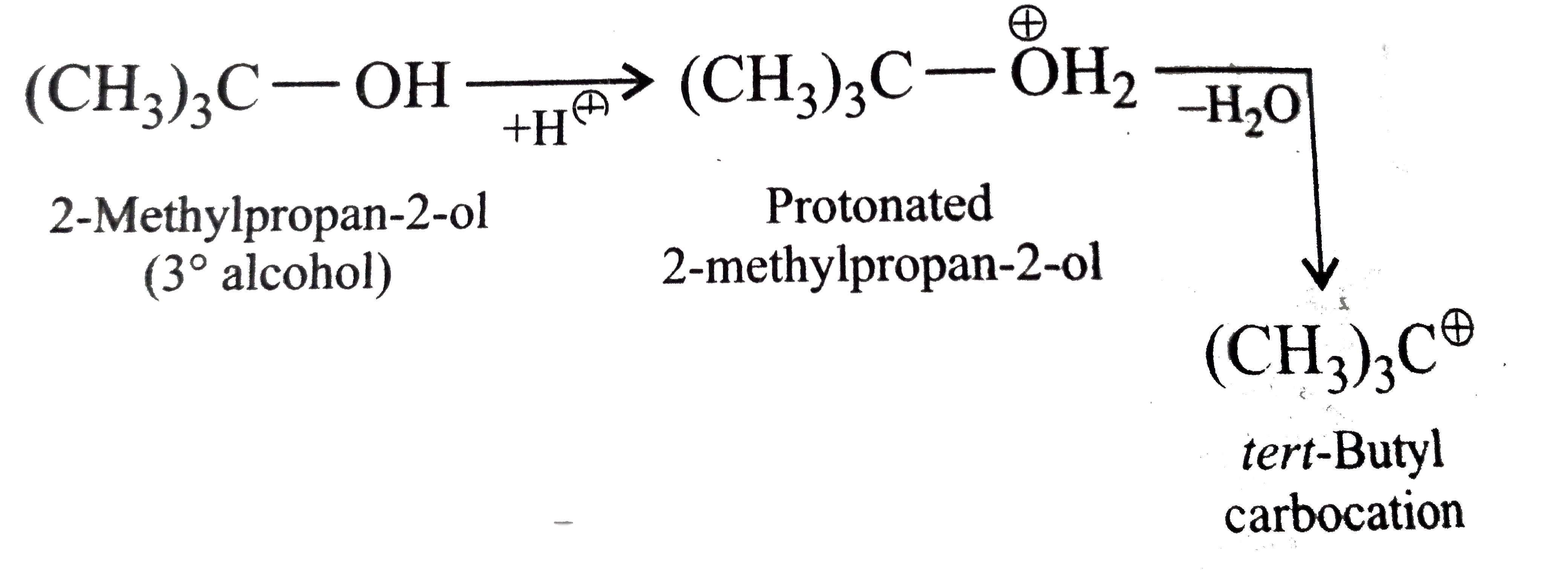
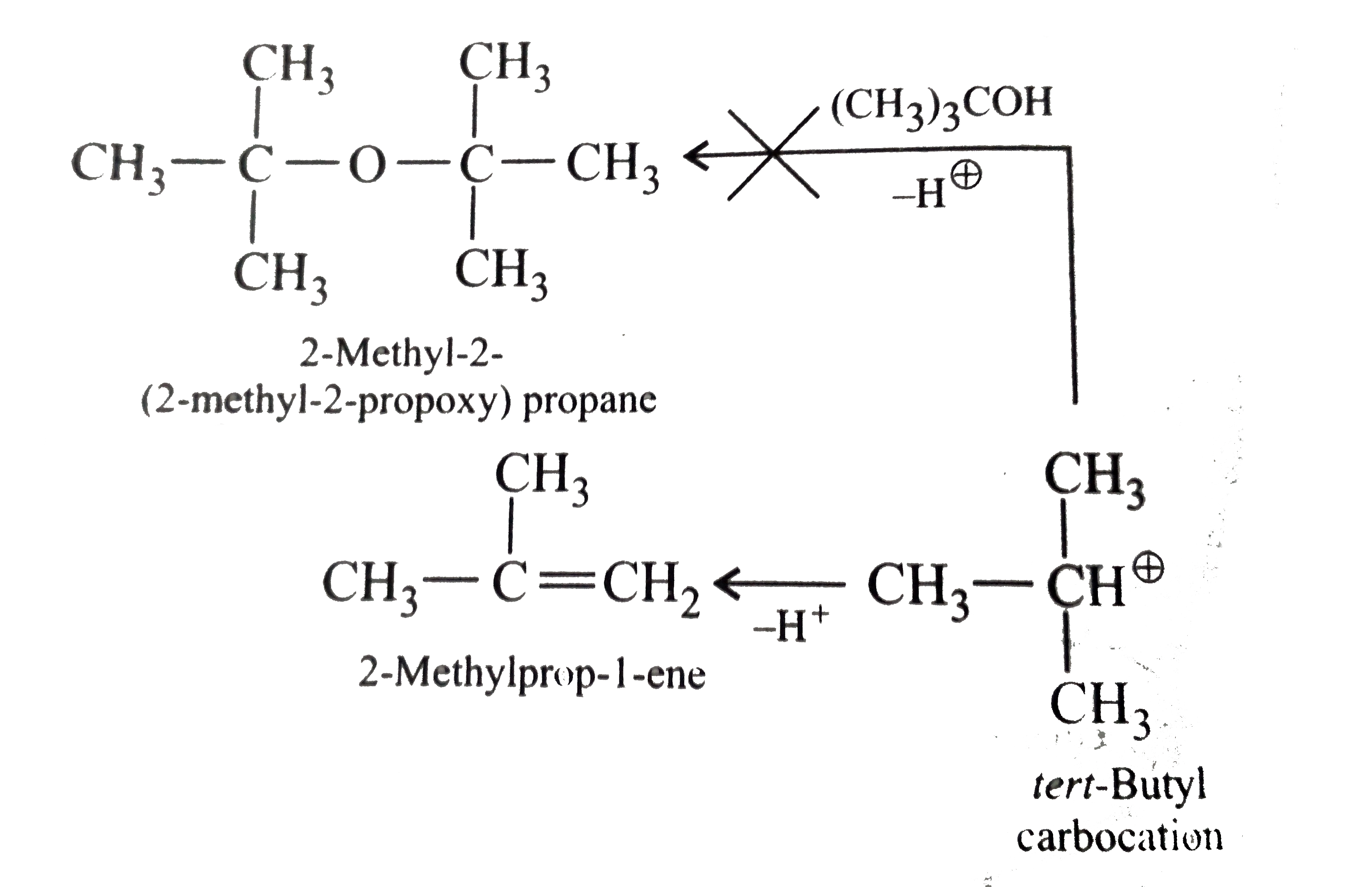
Topper's Solved these Questions
- ALCOHOL,PHENOL AND ETHERSBOOK - CENGAGE CHEMISTRYCHAPTER - ALCOHOL,PHENOL AND ETHERSEXERCISE - Exercises Linked Comprehension
60 Videos
- ALCOHOL,PHENOL AND ETHERSBOOK - CENGAGE CHEMISTRYCHAPTER - ALCOHOL,PHENOL AND ETHERSEXERCISE - Exercises Multiple Correct
35 Videos
- ALCOHOL,PHENOL AND ETHERSBOOK - CENGAGE CHEMISTRYCHAPTER - ALCOHOL,PHENOL AND ETHERSEXERCISE - Exercises Subjective
25 Videos
- ALIPHATIC AND AROMATIC ALDEHYDES AND KETONESBOOK - CENGAGE CHEMISTRYCHAPTER - ALIPHATIC AND AROMATIC ALDEHYDES AND KETONESEXERCISE - Archives Subjective
29 Videos
Similar Questions
Knowledge Check
Preparation of diethyl ether by dehydration of alcohol is an:
ASN1 reactionBSN2 reactionCNucleophilic addition reactionDElimination reactionDehydration of tertiary alcohols with Cu at 573 gives
AAldehydesBKetonesCAlkenesDNone of theseAcidic dehydration of the following alcohols is in the order :
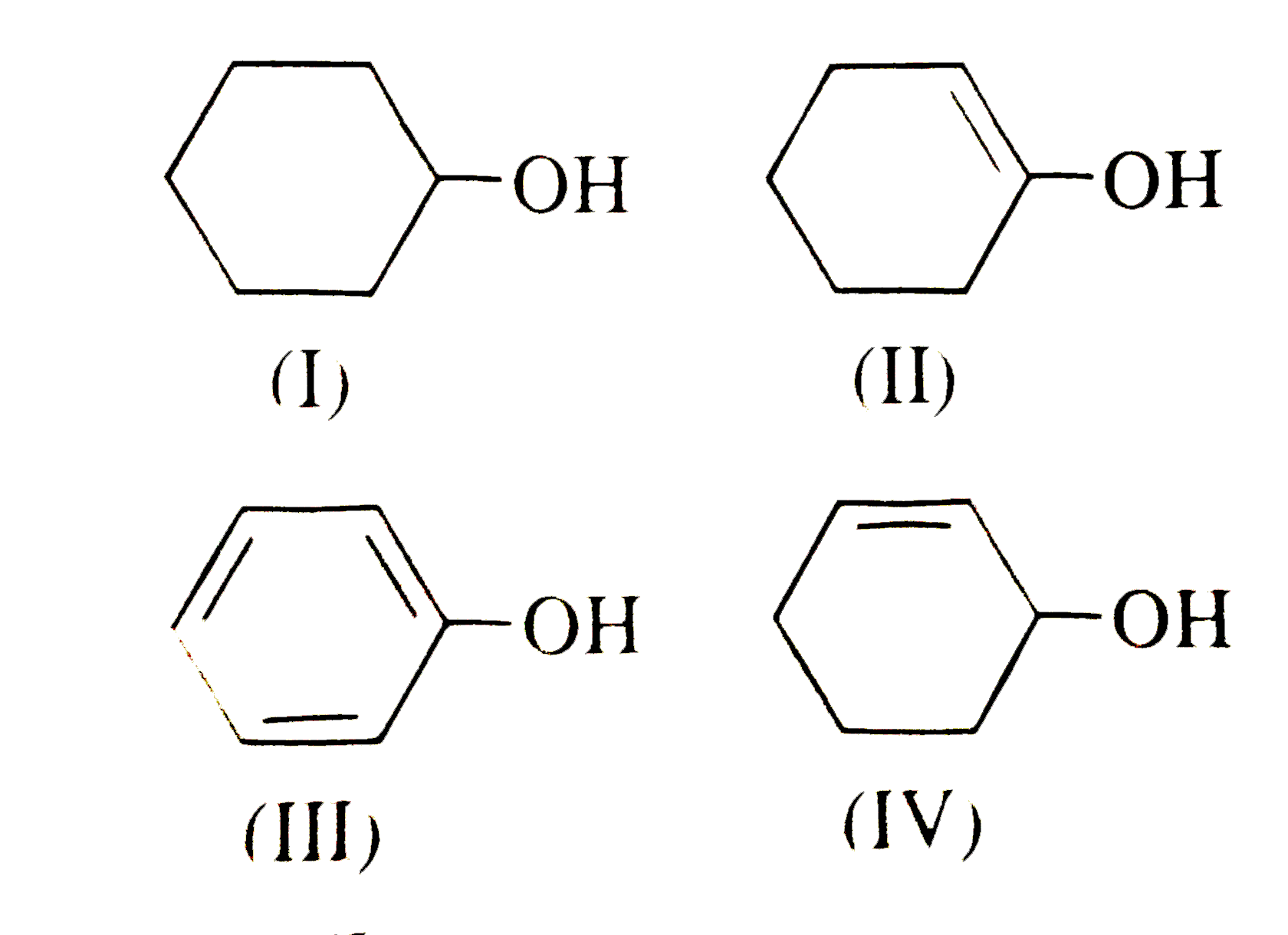 A(I)<(II)<(III)<(IV)B(I)>(II)>(III)>(IV)C(III)<(II)<(I)<(IV)D(II)<(III)<(IV)<(I).
A(I)<(II)<(III)<(IV)B(I)>(II)>(III)>(IV)C(III)<(II)<(I)<(IV)D(II)<(III)<(IV)<(I).
Account for the following :
Preparation of ethers by acid dehydration of secondary or tertiary alcohols is not a suitable method.
View SolutionDehydration of neophentyl alcohol gives
View SolutionThe acid that forms primary, secondary and tetiary phosphates is
View SolutionAlcohols undergo acid catalysed elimination reactions to produce alkenes. Because water is lost in the elimination , this reaction is called dehydration reaction. Secondary and tertiary alcohols always give E1 reaction in dehydration. Primary alcohols whose β-carbon is branched also give E1 reaction. The reactivity of alcohol for elimination reaction is tertiary alcohol gt secondary school gt Primary alcohol.
Which of the following dehydration product (major ) is incorrect ?
View SolutionThe preparation of ethers by diazomethane method is known as
View Solution
